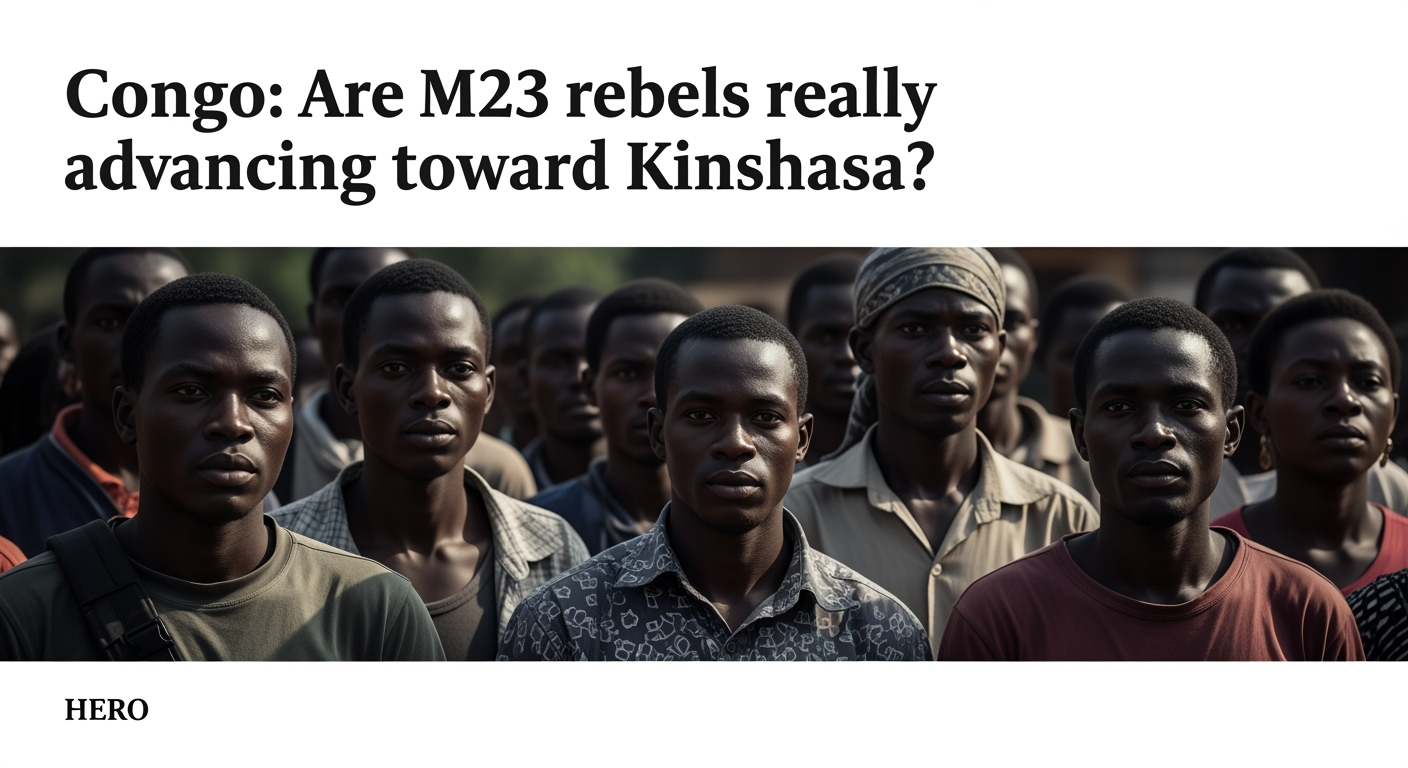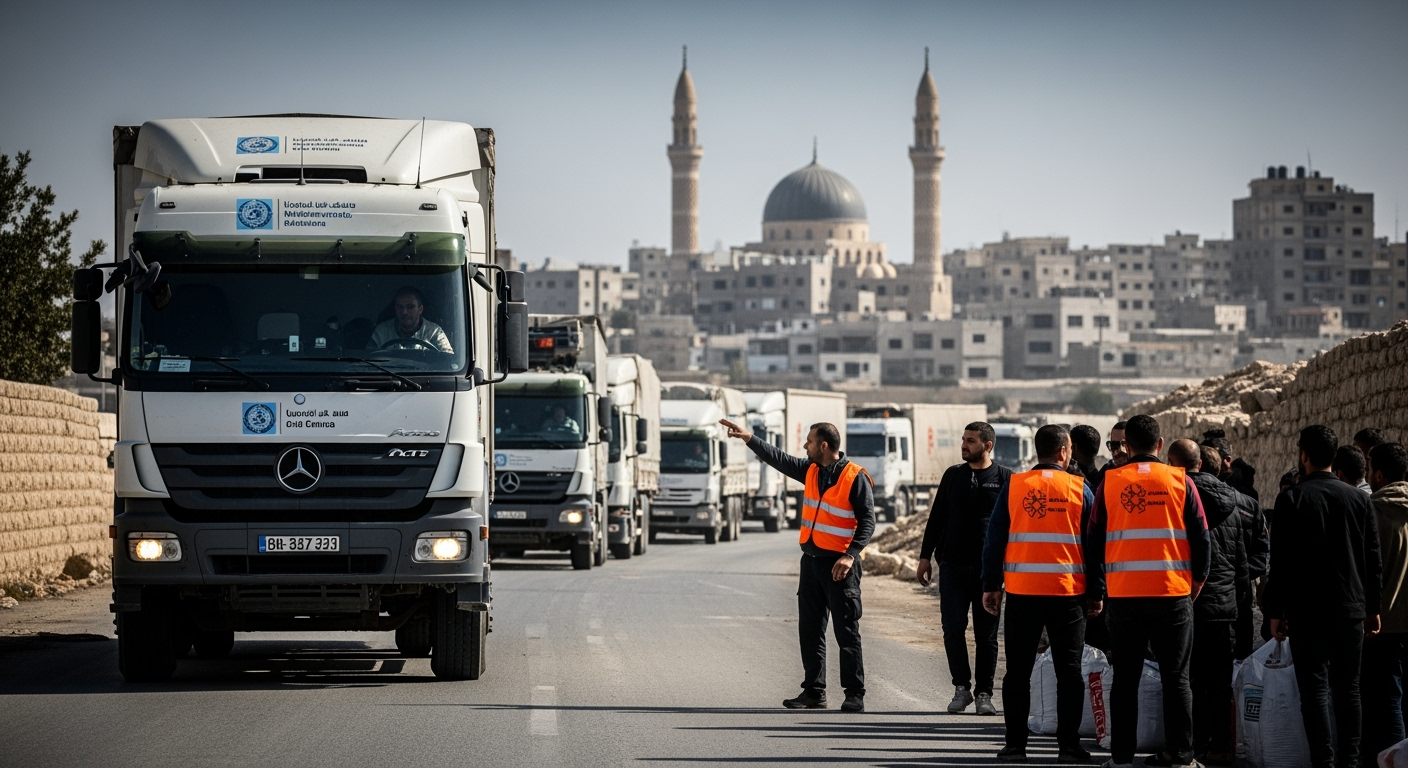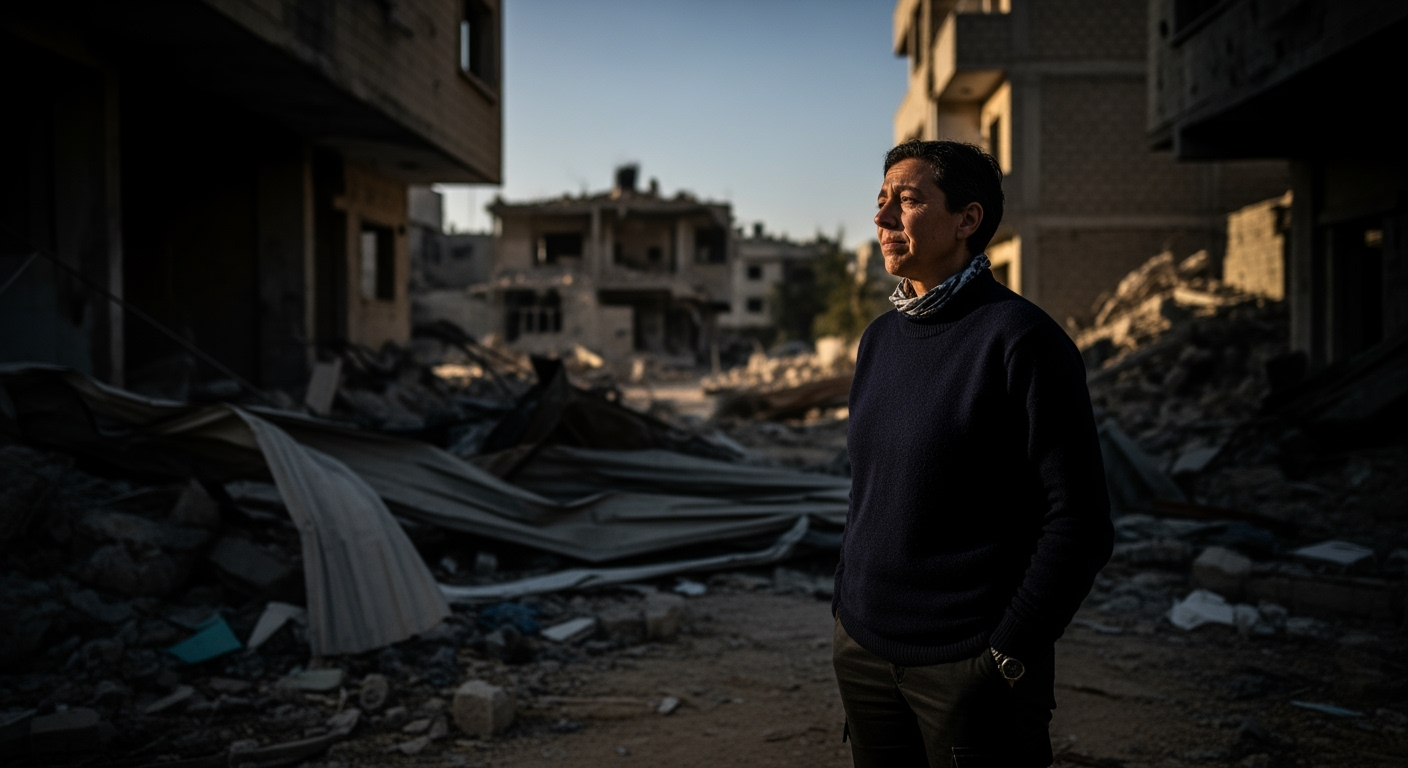Related Articles

M23 Rebels Intensify Eastern Offensive Amidst Rhetoric of March to Kinshasa

Turkey Emerges as Critical Player in Gaza Ceasefire Diplomacy





United Nations officials are sounding urgent alarms over Syria's perilous post-conflict trajectory, cautioning that the nation, recently emerged from decades of autocratic rule, stands on a "knife-edge" and risks descending into a fragmented, chaotic state akin to post-Gaddafi Libya. The overthrow of the Assad regime in December 2024, while initially igniting cautious hope for a new chapter, has revealed a landscape fraught with immense challenges, prompting the international community to emphasize the critical need for an inclusive political transition and robust reconstruction efforts to avert further catastrophic instability.
UN Special Envoy for Syria, Geir Pedersen, recently articulated the dire prognosis, stating that Syria "risks turning into Libya" should the promised changes and reforms fail to materialize. His comments underscore a pervasive fear within international diplomatic circles that the vacuum left by the collapse of the former government, coupled with deep-seated divisions and the enduring scars of war, could plunge Syria into a protracted period of lawlessness and fragmentation. Pedersen, who described Syria's prolonged conflict as a "dark chapter" that "has left deep scars," acknowledged the "immense" challenges ahead, even as he expressed "cautious hope" for a path toward peace and reconciliation. He has repeatedly stressed the importance of stable and inclusive transitional arrangements, urging that Syrian institutions continue to function and that the Syrian people be empowered to chart a path toward a unified nation. The UN Secretary-General, Antonio Guterres, echoed these sentiments, emphasizing that Syria's future must be determined by its own people, with the UN committed to supporting an "inclusive and comprehensive" political transition that meets the legitimate aspirations of all Syrians.
The comparison to Libya serves as a stark reminder of the potential consequences of an unmanaged post-conflict environment. Following the overthrow of Muammar Gaddafi in 2011, Libya, despite a much shorter conflict duration than Syria, rapidly fractured into a deeply unstable nation. The country descended into lawlessness and violence, marked by the emergence of two rival administrations and a power vacuum exploited by numerous armed groups vying for control. Key factors contributing to Libya's enduring instability included the absence of robust state structures, a largely defunct security apparatus, and a complex web of overlapping conflicts, including clashes between political elites, ideological divides, and persistent regional and ethnic claims for autonomy. Libya became a fertile ground for militant groups, including Al-Qaeda and Islamic State organizations, which capitalized on the pervasive chaos, becoming a haven flooded with weapons and foreign fighters. The UK Foreign Secretary, David Lammy, explicitly stated, "We do not want Syria to become like Libya… fractured and vulnerable to different terrorist groups," highlighting the international community's anxiety over a repeat scenario.
As Syria navigates its nascent post-Assad era, the challenges it faces are arguably even more profound than those that confronted Libya in 2011. The nation has endured nearly 14 years of brutal conflict, resulting in over 600,000 deaths and the displacement of millions, both internally and as refugees abroad. This prolonged devastation has decimated much of the country's infrastructure, deepened social divisions, and crippled its economy. The interim government, led by President Ahmed al-Sharaa, has inherited a state marked by significant political fragmentation, economic hardship, and persistent security risks. Analyst Nanar Hawach noted that Syria’s economy is "almost devastated," with services nearly non-existent and vast destruction across the country. International sanctions, particularly those imposed by the U.S., remain a significant hurdle to reconstruction, hindering legitimate economic activity while inadvertently allowing illicit networks to flourish. The country's transition is further complicated by the continued presence of competing armed groups, unresolved territorial disputes, and the pervasive influence of foreign military interventions. Despite the initial efforts towards political reform, such as the formation of a broader cabinet and plans for an interim People's Assembly, the situation remains "extremely fragile," as cautioned by Pedersen. Over 70% of the Syrian population is in need of aid, and more than half face food insecurity, underscoring the severe humanitarian crisis.
The international community, through the United Nations, is pressing for a comprehensive, inclusive, and Syrian-led solution to prevent the nation from falling into a deeper quagmire. Pedersen has consistently urged all armed actors to uphold law and order, protect civilians, and preserve public institutions during this sensitive period. He has also called on the international community to provide sanctions relief, support domestic reforms, and cease foreign interventions, asserting that the success of the transition hinges on "much more political inclusion" and "economic action". The UN acknowledges that while the fall of the Assad regime has brought opportunities for renewal, the challenges demand immediate and coordinated international support. Recent developments, including the voluntary return of 152 Syrians from Libya to Damascus, facilitated by the International Organization for Migration (IOM), and the planned resumption of direct flights, offer small glimmers of hope for repatriation and normalization, yet these remain isolated efforts amidst a monumental task. The emphasis is on building a government that serves all Syrians, addressing human rights abuses, and ensuring accountability.
Syria's path forward is a delicate balance between opportunity and extreme peril. The echoes of Libya's post-conflict unraveling serve as a sobering blueprint of what could transpire if the current fragile transition is mishandled. UN officials have made it clear that without a genuine Syrian consensus, comprehensive political reforms, significant international support, and a commitment to address the root causes of the conflict, Syria risks prolonged gridlock and renewed waves of strife. The future of Syria, therefore, depends not only on the actions of its interim leadership but also on the sustained, coordinated, and responsible engagement of regional and international actors to shepherd the nation towards a stable, unified, and peaceful existence, thereby averting the devastating fate of its North African counterpart.